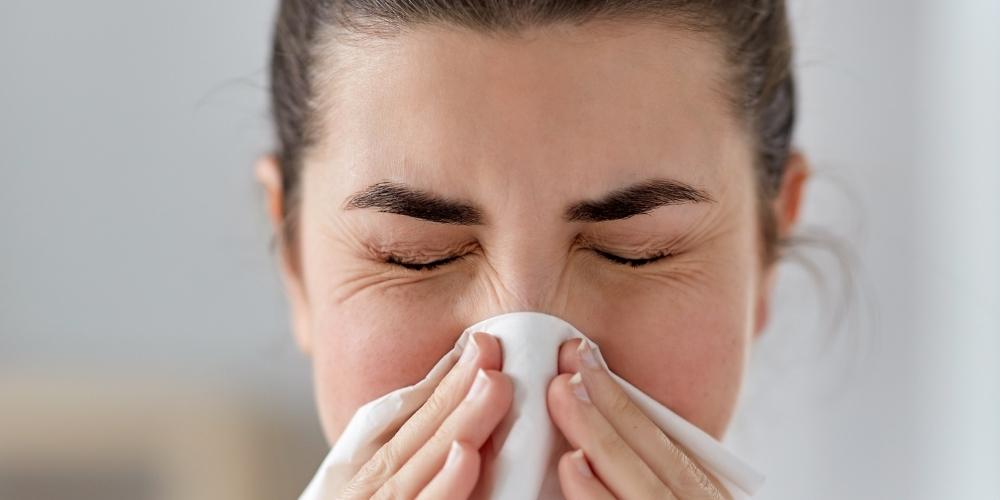Our body can overreact to various substances seasonally or independently of the seasons. This is called an allergy. There are many causes of allergies, such as pollen, various foods, house dust or pet dander. For treatment, the source of the problem causing allergic rhinitis must first be identified.

What is Rhinitis and Why Does It Happen?
Allergic cold or rhinitis, also called hay fever or spring cold, is an upper respiratory tract disease.
Allergic rhinitis can occur seasonally or chronically throughout the year.
It is caused by the body's allergic overreaction to certain substances. Patients with allergic rhinitis are likely to develop various allergy-related diseases such as asthma, urticaria or eczema. At the same time, patients with a family history of rhinitis have a higher risk of developing allergic rhinitis.
Seasonal rhinitis occurs mostly in spring and summer or in the fall. The cause is usually pollen. Year-round problems can be caused by house dust, insects or pets.
What are the Symptoms of Allergic Rhinitis?
If left untreated, allergic rhinitis can cause recurrent sore throat, sinusitis, ear infections, headaches, coughing, fatigue and sleep disorders. Therefore, the necessary steps should be taken for treatment as soon as symptoms appear. Common symptoms of allergic rhinitis include:
- Nasal congestion or transparent nasal discharge,
- Itching in the eyes, nose, nasal passages, palate or ears,
- Coughing and sneezing,
- Feeling of heaviness in the face or sinuses,
- Nasal discharge
- Inability to smell,
- Weakness and fatigue,
- Watering and reddening of the eyes,
- Darkening and swelling under the eyes.
Symptoms of allergic colds are often confused with normal colds or sinusitis. Therefore, it is useful to see a doctor for a definitive diagnosis.
How is Rhinitis Treated?
The doctor usually diagnoses the disease after listening to the patient's history and performing a physical examination. However, various skin and blood tests may be requested to determine which allergens cause rhinitis. For treatment, patients should first limit their activities at times or in areas where they may be exposed to pollen. The main treatment methods that can be applied are as follows:
- Allergy vaccines, also called immunotherapy,
- Sublingual allergy tablets,
- Nasal sprays and allergy medicines.
It may not be possible to completely eliminate the disease with all these treatment methods, but the symptoms can be controlled.
Lifestyle Changes for Patients with Allergic Rhinitis
Some lifestyle changes that patients can implement are helpful in controlling symptoms. The following are the recommendations recommended by the doctor:
- Excessive woolen and dust-collecting items should not be kept in living spaces,
- Shag carpets can increase allergies,
- Living spaces should be regularly ventilated,
- If possible, use a vacuum cleaner with a water filter,
- Non-allergenic items should be used.
This list can be extended with many other recommendations such as not smoking, not keeping furry pets or not drying laundry at home. Therefore, you should first have a medical examination and then follow the advice given by your doctor.
 Language
Language
 Turkish
Turkish
Recent Comments